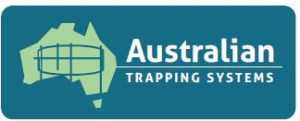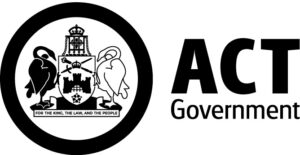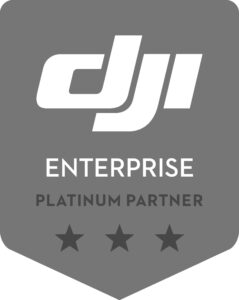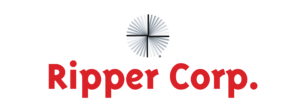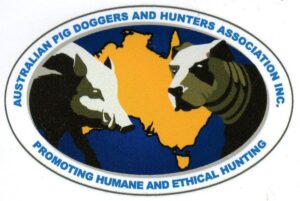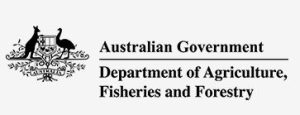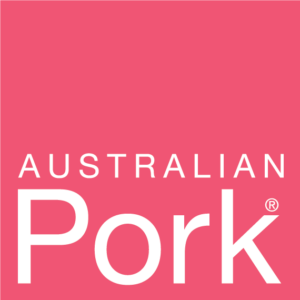The National Feral Pig Action Plan
The Conference countdown is on!

Getting the fundamentals right
National Feral Pig Conference 2025
The National Feral Pig Action Plan 2021-2031 aims to deliver long term active suppression of feral pig populations to reduce their extensive impacts across 45% of Australia’s land mass.
The National Feral Pig Conference 2025 is the perfect opportunity for land managers, community groups, jurisdictions, NRM organisations and research agencies to come together to:
- share how different management approaches are being used to control feral pig populations, and lessons learned
- demonstrate benefits flowing from working in coordinated and collaborative ways
- learn from others on how land managers are being supported to participate in local, community-led management activities
- discover how insights from routine monitoring and new and existing technologies can optimise the success of feral pig management programs.
This national Conference will allow you to meet and network with others dealing with feral pig impacts, strengthen relationships, and gain insights that may increase the effectiveness and efficiency of feral pig management programs.
Dates: 24-26 March 2025
Venue: Mantra on View, Surfers Paradise, QLD
- #nationalferalpigconference2025
- #nationalferalpigactionplan
Important dates for your diary
Abstract submission is now closed- if you still would like to submit a poster abstract please contact heather.channon@feralpigs.com.au.
Standard full registration closes: 7 March 2025
Late registration opens: 8 March 2025
Conference Program
The draft Conference Program is now available below. Please note this program may be subject to change.
Conference agenda
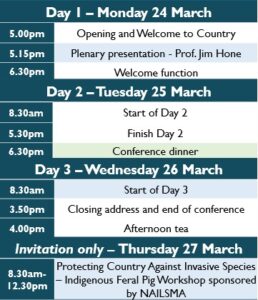
Invited speakers
Our conference theme, Getting the fundamentals right, will be addressed through four informative themes.
- Effective regional coordination and collaboration
- Harnessing people power
- Risk mitigation, decision making and continuous improvement
- Keeping up with change
Our invited high-calibre and diverse range of invited speakers include:
Plenary speaker
Professor Jim Hone, University of Canberra
Jim is an Emeritus Professor at the University of Canberra. He studies why wildlife populations vary in abundance and what causes such variation. The wildlife species studied include feral pigs in temperate and tropical Australia, to barn owls and badgers in UK, to lynx and snowshoe hares in Canada.
The research includes assessing dynamics and control of wildlife disease of economic importance such as foot and mouth disease, classical swine fever, porcine gastroenteritis, to bovine tuberculosis.
Jim will address the topic “Managing feral pig damage for production and biodiversity” and discuss how the relationship between management effort and outcomes can be demonstrated, drawing on knowledge from past feral pig research.
Effective regional coordination and collaboration
Bec Gray, NSW Local Land Services
Bec Gray is NSW’s first Feral Pig Coordinator, a role established under the Feral Pig Program 2023-24. Her role assists with the delivery of the statewide Feral Pig and Pest Program. Bec has worked in invasive species management with Local Land Services since 2011, as a frontline Biosecurity Officer, Team Leader and Senior Projects Officer. The majority of her work has focused on the practical application of feral pig management programs and helping staff, farmers and land managers to plan and deliver more effective control programs. Bec is part of the Project Team led by Principal Program Manager Mark Lettfuss and includes Communications Officer Sheree Lyons.
Dr. Angie Reid, NAILSMA
Dr. Angie Reid is the Senior Project Coordinator for NAILSMA’s Protecting Country Against Invasive Species Program. She came to Australia from the United States in 2015 to do a PhD on fire ecology and large feral herbivores working with an Indigenous Ranger Group in WA and Traditional Owners in Arnhem Land. Following her PhD, she decided to remain in Australia supporting Indigenous land management and worked as an Indigenous Protected Area Coordinator in the Great Sandy Desert for 4 years. Angie has over 15 years of experience in ecological research and land management.
Linda Vernon, Central Wheatbelt Biosecurity Group
Linda Vernon is the Executive Officer of the Central Wheatbelt Biosecurity Association a recognised biosecurity group in the Mid-West Region of WA. With a commitment to biosecurity excellence, she provides strategic, executive, and administrative support to the board. Its a dynamic role involving daily management, implementing annual operational plans, and fostering stakeholder collaboration. With a strong focus on community engagement, Linda plays a lead role in ensuring the region remains resilient and well-prepared to address biosecurity challenges.
Harnessing people power
John Nolan, Murray Local Land Services
The importance of establishing trust and building relationships with land managers to encourage practice change and capture benefits from working together as a group to reduce feral pig impacts will be addressed by John Nolan from Murray Local Land Services. John’s presentation will address the session theme “Harnessing people power”.
James Templeton, Conservation Ecology Centre, Cape Otway VIC
Hailing from Queensland, James joined the Conservation Ecology Centre team in 2021, where he has been actively involved in various research and land management initiatives focusing on feral animals, native flora, and small mammals. His previous experience in ethnobotanical research and his time with grassroots organisations has bolstered his beliefs in community engagement, particularly with indigenous organisations. Having strong connections to the Otways and community, James possesses an innate understanding of knowing when to listen and when to act. He treasures the opportunity to live and work on Gadubanud country, where he can contribute to conservation efforts for this land.
Risk mitigation, decision making and continuous improvement
Dr. Andrew Bengsen, Vertebrate Pest Research Unit, NSW Department of Primary Industries and Regional Development
Andrew is a Senior Research Scientist with NSW DPIRD’s Vertebrate Pest Research Unit. He has been conducting research to improve the management of feral pigs and other pests for 20 years.
Dr. Brendan Cowled, Ausvet and Rebecca Ambrose, Biosecurity Queensland, Department of Primary Industries
Brendan is a veterinary epidemiologist and Executive Director of Ausvet Pty Ltd.
He started his working career as a cattle veterinarian, before moving into research with a PhD in feral pig control and then looking at disease transmission between cattle and feral pigs. He now does a variety of biosecurity and epidemiology work across the globe and in Australia.
Keeping up with change
Dr Justin Perry, NAILSMA
Dr Justin Perry is the Research Manager for the Northern Australian Indigenous Land and Sea Management Alliance and Senior Research Fellow at James Cook University and previously held a long-term position as a Research Scientist at CSIRO. Justin’s has been leading research on threatening processes to Australia’s tropical ecosystems since 2006 with a focus on applied research into the impacts and management of fire, feral animals and weeds on the ecological function of northern Australian ecosystems. Prior to his career in research, Justin spent 8 years working as a ranger managing fire, feral animals and weeds in remote national parks in the Northern Territory. Justin is the chair of the scientific advisory panel for the National Feral Pig Management Action Plan, a member of the Kakadu National Park Research Advisory Committee and a member of the Australian Governments Biodiversity Assessment Expert Reference Group which has focused on the development of the Biodiversity Assessment Instrument that will underpin the Nature Repair Market scheme.
Dr Jack Hill, University of Queensland
Jack is a marine ecologist with a passion for coastal vegetated ecosystems, fieldwork, and foregrounding Indigenous knowledges. He lives and works on Yagera, Turrbal and Quandamooka Country in south-east Queensland. He is currently supporting the development of a new Australian carbon market method that Traditional Owners could use to earn income while keeping their wetland Country healthy, by managing feral ungulates. During his PhD, he was excited by the unique physical structures of mangrove trees and roots, and how they allow these forests to survive in the dynamic intertidal zone.
Dr. Tarnya Cox, Vertebrate Pest Research Unit, NSW Department of Primary Industries and Regional Development
Tarnya Cox is a Research Scientist with the Vertebrate Pest Research Unit in the NSW Department of Primary Industries and Regional Development. Tarnya has worked on improved biological control of the introduced European rabbit through the introduction of an additional strain of rabbit haemorrhagic disease virus and landscape-scale feral cat management. Tarnya’s main field of research is in the use of thermal imaging technologies to improve animal detection and how these technologies can be used to improve pest animal management methods and outcomes.
Registration
The Conference will be in person at the Mantra on View, Surfers Paradise, QLD.
Registration options are below.
Noting: The dress code for the Conference and Conference dinner is smart/business casual.
Extra tickets are available for:
- Welcome function = $80/additional ticket
- Conference dinner = $120/additional ticket
Full registration
14 January 2025 - 7 March 2025-
Welcome function (Monday 24 March 2025)
-
Conference presentations and discussions over 2 days
-
Conference dinner (Tuesday 25 March 2025)
-
Morning tea, lunch, and afternoon tea on both conference days
-
Access to trade exhibition
-
Early bird registration (Closed 13 January 2025) $495
-
Late registration (From 8 March 2025) $750
Sponsors and exhibitors
Sponsorship opportunities are still available for our National Feral Pig Conference 2025.
The National Feral Pig Conference 2025 offers different levels of sponsorship.
We will ensure that all sponsors, trade exhibitors and delegates have many opportunities to meet and exchange ideas and information. We are committed to ensuring that all who attend the conference receive excellent return on their investment, whether that is professional learning, opportunities to develop your career or promotion of your products and resources.
Our sponsors and exhibitors
Abstract submissions
Abstracts are now closed for the National Feral Pig Conference 2025. If you still would like to submit an abstract for a poster presentation, please contact heather.channon@feralpigs.com.au or 0423 056 045.
The National Feral Pig Conference 2025 is the perfect opportunity for all land managers dealing with feral pigs to share details of management programs, assets being protected, technologies being used to reduce populations and/or monitor feral pig impacts, and successes, challenges and key learnings.
New insights will be shared from feral pig research programs including exploring management approaches, ecology and behaviour, impact and population monitoring, and community engagement.
Presentations will address the Conference session themes of:
- Effective regional coordination and collaboration
- Harnessing people power
- Risk mitigation, decision making and continuous improvement
- Keeping up with change
Important dates
- Abstract submission online portal is now closed- if you still would like to submit an abstract for a poster presentation, please contact heather.channon@feralpigs.com.au or 0423 056 045.
- Abstracts submitted for presentation will be published as received and should be checked for spelling and grammar prior to submission.
- Ensure you fill out all relevant sections.
- A template is provided here describing all required information.
- You must accept/acknowledge all terms and conditions before submission.
- All correspondence will be sent to the person who submitted the abstract.
Details to provide:
- A clear and concise title (maximum 30 words)
- Include name and affiliation details of all authors
- Abstract (maximum 400 words)
- Provide a short biography of the presenter(s) / author(s) (maximum 100 words)
Oral presentation – 10 minutes
A unique opportunity for you to promote or highlight your feral pig management program, outcomes and projects.
Podium style presentations will be 10 minutes in length, with Q&A after each grouping of speakers. Full audio-visual systems will be available.
Speed talks – 4 minutes
You get 4-minutes to convey your project/success story to the audience. These will be strictly timed.
Speed presenters will provide 1 PowerPoint slide to aid their 4-minute presentation.
Poster presentation
If you would like to present your work as a poster submission, we would love to see it! A limited number of posters will be allocated a dedicated space at the venue for the duration of the event.
Posters can be printed at Officeworks and other businesses.
Closest Officeworks to Conference venue – Officeworks Southport, 59 Nerang St, Southport 4215. Public transport can be used and will take approximately 18 minutes.
Presentation formats:
- PowerPoint format to be widescreen (16:9)
- Posters should be portrait in size A0 (W 841mm x H 1189mm final size)
Accepted presenters must register and pay for the full registration by 7 days after notification of presentation, or their presentation will be removed from the program.
The presentations may be recorded.
Abstracts will be made available to delegates and online prior to the conference via the NFPAP website.
Presentation slides will be requested in advance, with further details to be provided closer to the event.
The Conference Program Committee (CPC) reserves the right to allocate the presentation to best suit the program.
The invitation to submit an abstract does not constitute an offer to pay travel, accommodation or registration costs associated with the Conference.
No presenter fee is paid to successful presenters.
Conference location and venue information
The National Feral Pig Conference 2025 will be held on 24-26 March 2025 at the Mantra on View, Surfers Paradise on the Gold Coast, Queensland.
Accommodation options
The Conference has secured discounted rooms at the Mantra on View for $180/night.
These are available when registering for the conference on your Currinda account.
Getting there:
Mantra on View Hotel is positioned right in the heart of Surfers Paradise just 500m from the beach. Surfers Paradise is only a 50-minute drive from Brisbane, Queensland’s Capital City and just 20 minutes from Gold Coast Airport.
There are a number of transport options from the Gold Coast airport including:
- Buses, trains and trams (cheapest)
- Airport transfers
- Taxi and ride sharing
- Car hire
For more information on transport options, visit https://www.goldcoastairport.com.au/parking-transport/transport
Note for public transport:
All public transport services in South East Queensland, only accept pre-paid tickets. So before you travel you will need to buy a go card (where you pay for each trip) or go explore card (unlimited daily travel). These are sold at the Gold Coast Arrival terminal or you can find go card retailers on the Translink website.
Map of conference venue
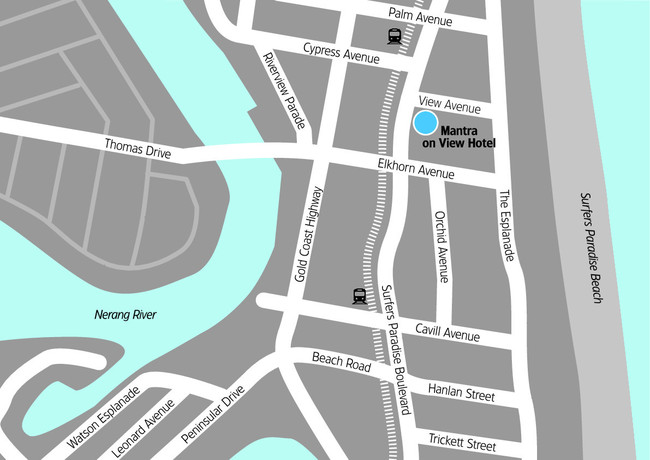
Acknowledgement of Country
The National Feral Pig Action Plan acknowledges and pays respect to the traditional Aboriginal people whose Country lies within the City of Gold Coast area, the Yugambeh people, and we acknowledge all their descendants. We also acknowledge the many Aboriginal people from other regions as well as Torres Strait and South Sea Islander people who now live in the local area and have made an important contribution to the community.

